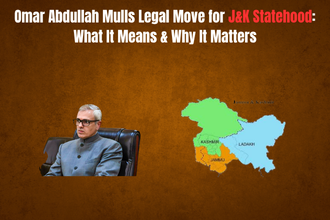In a recent legal development, the Delhi Sessions Court has granted significant relief to renowned social activist Medha Patkar by deciding against her imprisonment in a long-standing defamation case filed by Delhi Lieutenant Governor VK Saxena. While the court upheld her conviction under Section 500 of the Indian Penal Code (IPC) for criminal defamation, it opted for a more lenient approach in sentencing, acknowledging her contributions to society.
Background of the Case
The origins of the defamation dispute trace back to the year 2000, when VK Saxena, then President of the National Council of Civil Liberties, published an advertisement titled “True Face of Ms. Medha Patkar and her Narmada Bachao Andolan (NBA)”. The advertisement was critical of the NBA, a movement led by Patkar that opposed the construction of dams on the Narmada River due to concerns over displacement and environmental degradation.
In response, Medha Patkar issued a press note titled “True Facts of a Patriot – Response to an Advertisement”, which alleged that Saxena had previously supported the NBA, even donating ₹40,000 through a cheque from the Lalbhai Group. The press note questioned the connection between Saxena and the Lalbhai Group, further stating that the cheque had bounced.
The contents of this press note became the basis of a defamation suit filed by Saxena against Patkar in Ahmedabad in 2001. In 2003, the Supreme Court ordered the case to be transferred to Delhi. After nearly two decades of legal proceedings, the case reached a significant turning point in July 2024, when a magistrate court found Patkar guilty of criminal defamation and sentenced her to five months of imprisonment along with a ₹10 lakh compensation to be paid to Saxena.
Sessions Court Upholds Conviction but Grants Probation
Medha Patkar filed an appeal before the Sessions Court at Saket, Delhi. On April 2, 2025, Additional Sessions Judge (ASJ) Vishal Singh upheld the conviction, stating that it had been proved beyond reasonable doubt that Patkar authored and disseminated the defamatory press note to harm Saxena’s reputation. The court remarked:
“The active involvement of Medha Patkar in authoring of the Press Note dated 24/11/2000 and its publication… is writ large on face of record. Conversely, the involvement of Medha Patkar is as hidden as an elephant behind an office table.”
Despite upholding the conviction, the court acknowledged Patkar’s stature as a public figure and her long-standing work as a social activist. Judge Singh emphasized that the nature of the offence did not warrant incarceration. Instead, Patkar was released on probation for one year for good conduct. The judge said:
“The court decides to release her for good conduct… She is being released on a probation of one year.”
Furthermore, the court reduced the ₹10 lakh fine imposed by the trial court and instead ordered Patkar to pay compensation to Saxena, the amount of which will be determined during sentencing submissions.
Arguments by Both Parties
During the trial, VK Saxena argued that he never visited Malegaon, never praised the NBA, and never donated any funds to Lok Samiti or the movement. He produced witnesses who claimed they had received the defamatory press note via email directly from Patkar.
On the other hand, Patkar denied authoring or disseminating the press note. She claimed that she had no knowledge of the press note’s existence, had no connection with the Narmada.org website where it was published, and had not sent any emails to media houses such as Rediff.com. However, the Sessions Court found these denials unconvincing and maintained that her conviction was justified based on the evidence presented.
Legal Significance and Social Impact
This case holds legal and social significance for several reasons. Firstly, it highlights how freedom of speech and expression must be balanced against the right to reputation, especially when public figures are involved. Secondly, it reflects the judiciary’s willingness to consider the broader context of an individual’s contributions while deciding on punishment.
The decision to grant probation instead of imprisonment shows judicial discretion rooted in reformative justice principles. Medha Patkar, as the founder of Narmada Bachao Andolan, has been a vocal advocate for the rights of displaced communities and environmental justice. Her work has earned her numerous national and international accolades, which the court took into consideration while pronouncing the sentence.
Next Steps: Appeal Before the Delhi High Court
Despite the leniency shown by the Sessions Court in sentencing, Patkar has challenged the conviction itself before the Delhi High Court. She seeks to overturn the guilty verdict and clear her name entirely. The appeal will test the boundaries of what constitutes criminal defamation in the digital age, especially when statements are made through online platforms.
Her legal team is expected to argue that there is insufficient evidence directly linking her to the publication and circulation of the press note. The High Court’s judgment will be closely watched by activists, media professionals, and legal experts across the country.
Conclusion
The Medha Patkar defamation case marks a significant chapter in Indian jurisprudence surrounding criminal defamation and the rights of public figures. While the Sessions Court upheld her conviction, its decision to grant probation instead of jail time reinforces the idea that punishment should be proportional to the gravity of the offence and the individual’s role in society.
The case also reignites debate around the continued relevance of criminal defamation laws in a democratic society. As Medha Patkar prepares to contest her conviction in the Delhi High Court, the legal community will await the outcome that could shape the contours of freedom of expression and personal reputation in India.


